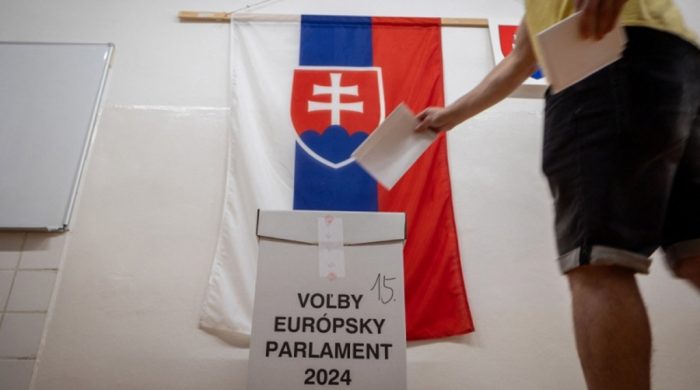Italy, Slovakia vote as EU election continues

- Update Time : Sunday, June 9, 2024
- 32 Time View

Italy became the first heavyweight nation to cast votes for the EU’s next parliament on Saturday, in a test of far-right leader Giorgia Meloni’s strength at home—and future influence in the bloc.
Most of the European Union’s 27 member countries, including powerhouses France and Germany, go to the polls on Sunday, the final day, with projected overall results due late that evening.
Slovakia on Saturday kicked off the final two days of voting in EU-wide elections, under the shadow of last month’s shooting of prime minister Robert Fico.
The May 15 assassination attempt on Slovakia’s populist premier rocked his nation of 5.4 million and spread shockwaves across the European Union.
Slovaks will elect 15 representatives to the EU.
The ballot in Italy—the EU’s third-biggest economy with 76 of the 720 seats in the new parliament—could have major consequences.
Meloni was expected to cast her ballot in her Rome constituency where temperatures were set to hit a sweltering 35 degrees Celsius.
Polls suggest Meloni’s Brothers of Italy party could win with 27 percent of the vote—more than quadrupling its score from 2019 — amid a broader surge of far-right groups across the bloc.
That would set up Meloni as a powerbroker in deciding whether EU Commission chief Ursula von der Leyen gets the backing she needs, from both member states and parliament, for a second term.
In the election run-up, Meloni has been actively courted both by the centre-right von der Leyen—and by French far-right leader Marine Le Pen, who wants to create a right-wing supergroup in the parliament.
Le Pen’s National Rally (RN) party is also topping the polls in the EU race.
EU-wide, immigration is the hot-button issue driving support to far-right parties. They are forecast to grab a quarter of parliament seats—though the centrist mainstream is still seen coming out on top.
Both of those parties—unlike Meloni’s—are leery of EU military and financial support to Ukraine against Russia’s invading forces, with the AfD outright hostile to weapons deliveries.
Hungary’s ruling populist Fidesz party is likewise opposed to further helping Kyiv.
The lead-up to EU elections in various countries has been marred by incidents of violence, though not all linked to political motives.
Late Friday in Denmark, which votes Sunday, prime minister Mette Frederiksen suffered a whiplash injury after being physically attacked in the street.
Police arrested the assailant but on Saturday said it was unlikely political motives were involved.















